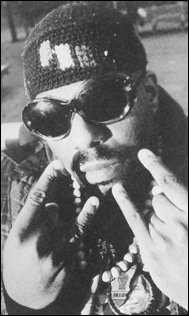Jesse James died from a shot in the back while playing cards.
He died in 1882 from a shot in the back of the head, and he wasn’t playing cards at the time. He was at home adjusting a picture on the wall when he was shot and killed. Jesse James and his brother Frank James were the leaders of the notorious James Gang, outlaws of the Wild West. In 1881, the governor of Missouri put out a $10,000 reward for the capture of the James brothers, dead or alive. Robert Ford, a member of the James Gang, killed Jesse so he could claim that money. Frank James turned himself in not long after Jesse’s death, and though he was tried for murder and armed robbery, he was found not guilty and released. 
The Concord grape was developed in Concord, New Hampshire.
It was developed in Concord, Massachusetts, in 1849. A man named Ephraim Wales Bull conducted 22,000 crossbreeding experiments during a 10-year period before achieving the Concord grape. In 1869, Dr. Thomas Welch, a New Jersey dentist, took 40 pounds of Concord grapes and, with his wife and son, used them to make and preserve the first unfermented grape juice. The family eventually established the grape juice company that would come to be named Welch’s. 
Barry Manilow wrote the song “Mandy” for his pet golden retriever.
Barry Manilow didn’t write “Mandy” for a golden retriever. In fact, he didn’t write the song at all. “Mandy” was written by Richard Kerr and Scott English and was originally titled “Brandy.” The song was Manilow’s first number-one hit when it was released in 1975, and it stayed on the charts for 12 weeks. (Here’s a song that was written for a dog: “Martha My Dear,” written by Paul McCartney for his sheepdog, Martha.) 
Break dancing started in the 1960s.
This style of dancing started on the streets of New York in 1969. Afrika Bambaata brought boom boxes to poor neighborhoods and encouraged kids to dance as an alternative to drugs and crime. Bambaata eventually founded Zulu Nation: a group of dancers, DJs, graffiti artists, and others. A 1984 film called Beat Street, produced by Harry Belafonte, featured the musical styles created by Zulu Nation.

This style of dancing started on the streets of New York in 1969. Afrika Bambaata brought boom boxes to poor neighborhoods and encouraged kids to dance as an alternative to drugs and crime. Bambaata eventually founded Zulu Nation: a group of dancers, DJs, graffiti artists, and others. A 1984 film called Beat Street, produced by Harry Belafonte, featured the musical styles created by Zulu Nation.

The Japanese bombed Canada during World War II.
The Japanese sent 9,300 balloon bombs floating across the Pacific Ocean during World War II. Though probably fewer than 1,000 balloons made it all the way across the Pacific, several did cause damage when they exploded into fiery balls in places like Montana, Wyoming, Colorado, North and South Dakota, and Canada. Called FU-GO by the Japanese, the balloons carried bombs that were mostly intended to start forest fires. In general, the incidents were not reported in newspapers, because the United States didn’t want Japan to know whether their plan had been successful. 




No comments:
Post a Comment